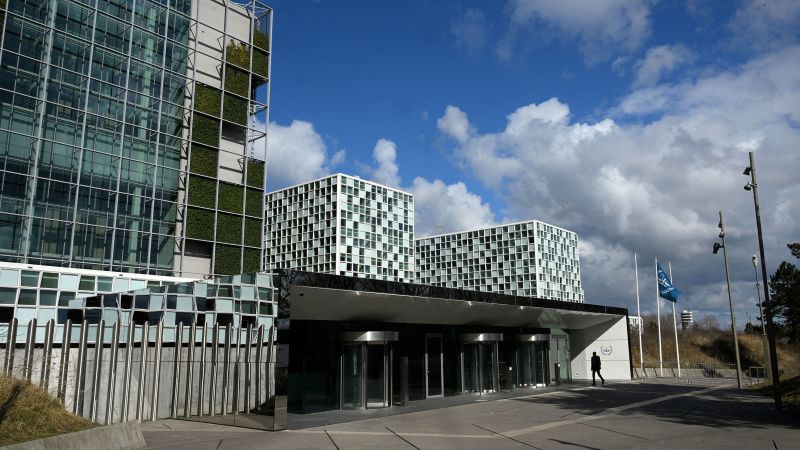Science
Trump Administration Targets ICC Officials with New Sanctions

The Trump administration has intensified its opposition to the International Criminal Court (ICC) by imposing sanctions on four additional officials. This decision, announced on Wednesday, involves individuals connected to investigations into alleged war crimes involving the United States and Israel.
In a statement, Secretary of State Marco Rubio identified the sanctioned officials as Kimberly Prost from Canada, Nicolas Guillou from France, Nazhat Shameem Khan from Fiji, and Mame Mandiaye Niang from Senegal. The sanctions target their roles in the ICC’s efforts to investigate, detain, or prosecute nationals from the United States or Israel without the consent of either nation.
These measures are part of a broader strategy initiated by an executive order signed by former President Donald Trump in February 2023. This order permits punitive actions, including sanctions and potential travel bans against ICC personnel, due to what the administration describes as “illegitimate and baseless actions targeting America and our close ally Israel.”
Previously, the executive order had already been utilized to sanction Karim Khan, the chief prosecutor of the ICC, along with four judges associated with the court. According to a fact sheet released by the State Department, Judge Prost received designation for her decision to authorize the ICC’s investigation into U.S. personnel in Afghanistan. Similarly, Judge Guillou was sanctioned for his ruling allowing the issuance of arrest warrants for Israeli Prime Minister Benjamin Netanyahu and former Minister of Defense Yoav Gallant.
The State Department’s fact sheet further elaborates that Deputy Prosecutors Shameem Khan and Niang are being sanctioned for their support of what the U.S. government considers illegitimate actions against Israel, including maintaining arrest warrants directed at Netanyahu and Gallant since taking leadership roles within the ICC’s Office of the Prosecutor.
In November 2024, the ICC issued arrest warrants for Netanyahu and Gallant, citing allegations of war crimes and crimes against humanity. The sanctions reflect a continuation of tensions between the Trump administration and the ICC, which has faced criticism from U.S. officials since it authorized a probe in 2020 into alleged war crimes committed by U.S. forces in Afghanistan, as well as actions by the Taliban.
The recent sanctions spotlight ongoing geopolitical disputes and the complexities surrounding international justice mechanisms. As the Trump administration underscores its commitment to protect U.S. interests, the implications of these sanctions extend beyond the ICC, affecting diplomatic relations and the broader framework of international law.
-

 Lifestyle4 months ago
Lifestyle4 months agoLibraries Challenge Rising E-Book Costs Amid Growing Demand
-

 Sports3 months ago
Sports3 months agoTyreek Hill Responds to Tua Tagovailoa’s Comments on Team Dynamics
-

 Sports3 months ago
Sports3 months agoLiverpool Secures Agreement to Sign Young Striker Will Wright
-

 Lifestyle3 months ago
Lifestyle3 months agoSave Your Split Tomatoes: Expert Tips for Gardeners
-

 Lifestyle3 months ago
Lifestyle3 months agoPrincess Beatrice’s Daughter Athena Joins Siblings at London Parade
-

 World3 months ago
World3 months agoWinter Storms Lash New South Wales with Snow, Flood Risks
-

 Science4 months ago
Science4 months agoTrump Administration Moves to Repeal Key Climate Regulation
-

 Science2 months ago
Science2 months agoSan Francisco Hosts Unique Contest to Identify “Performative Males”
-

 Business4 months ago
Business4 months agoSoFi Technologies Shares Slip 2% Following Insider Stock Sale
-

 Science4 months ago
Science4 months agoNew Tool Reveals Link Between Horse Coat Condition and Parasites
-

 Sports3 months ago
Sports3 months agoElon Musk Sculpture Travels From Utah to Yosemite National Park
-

 Science4 months ago
Science4 months agoNew Study Confirms Humans Transported Stonehenge Bluestones









